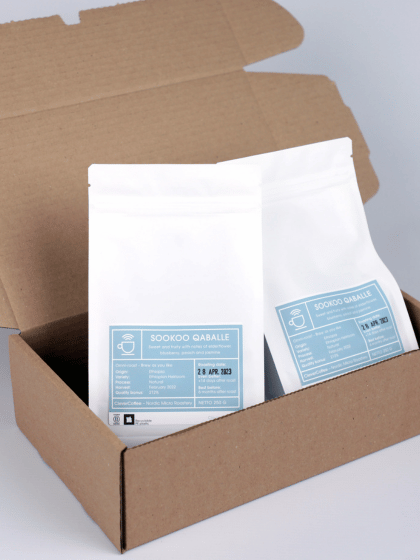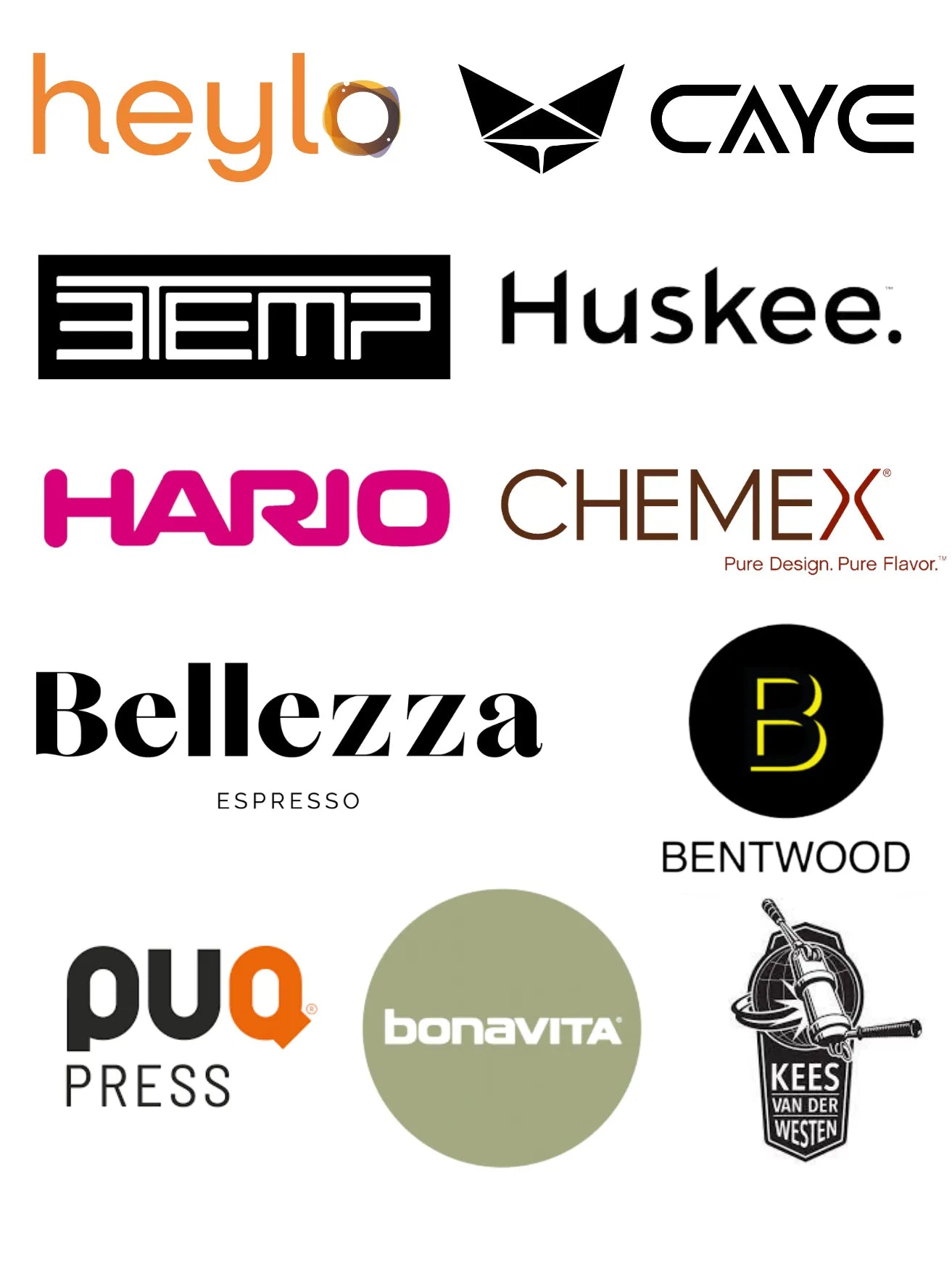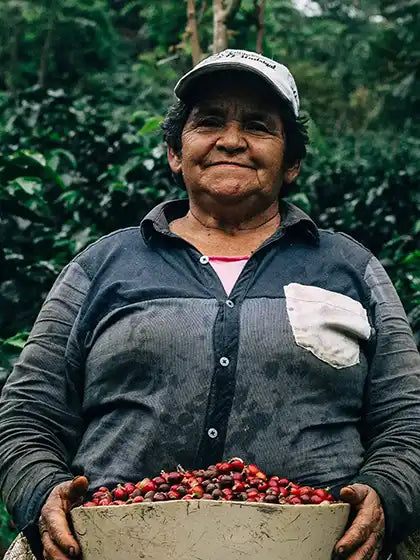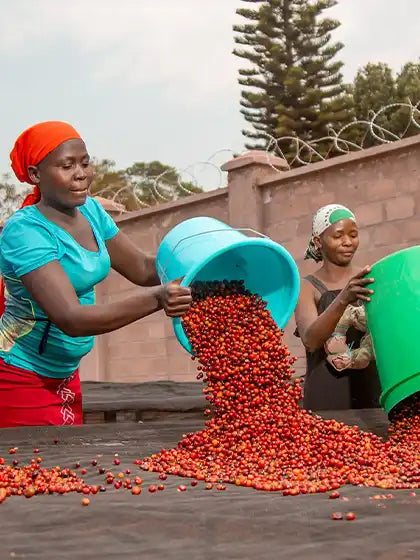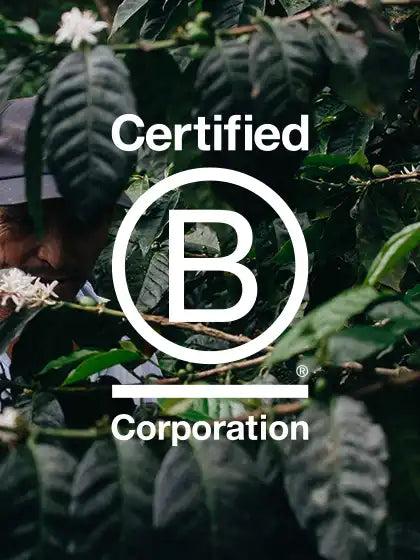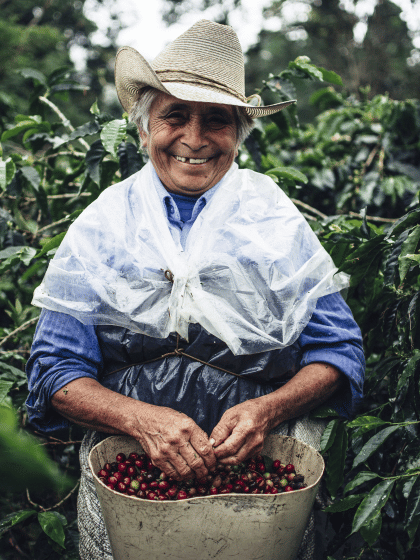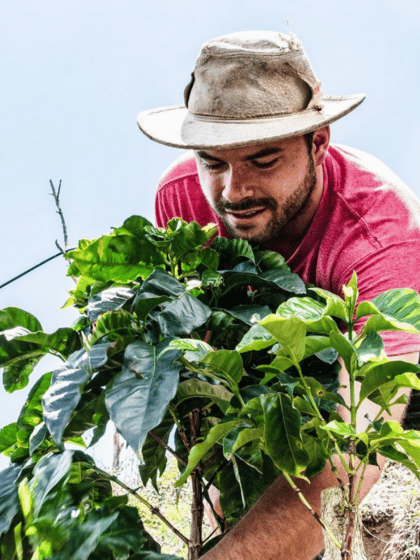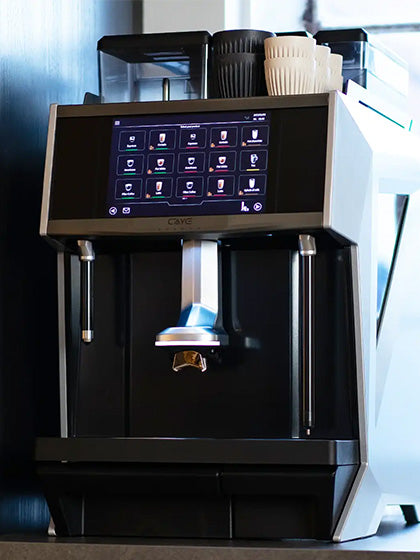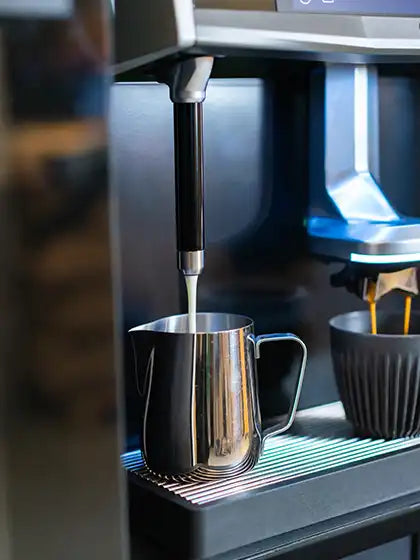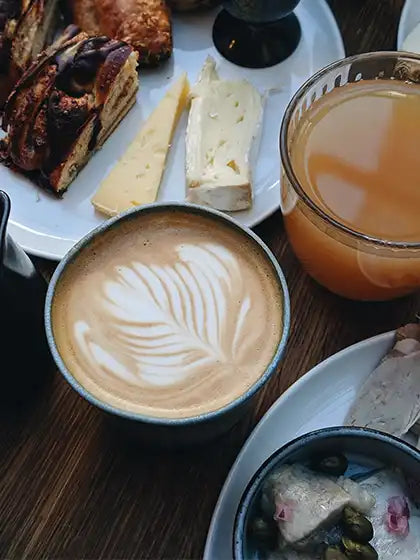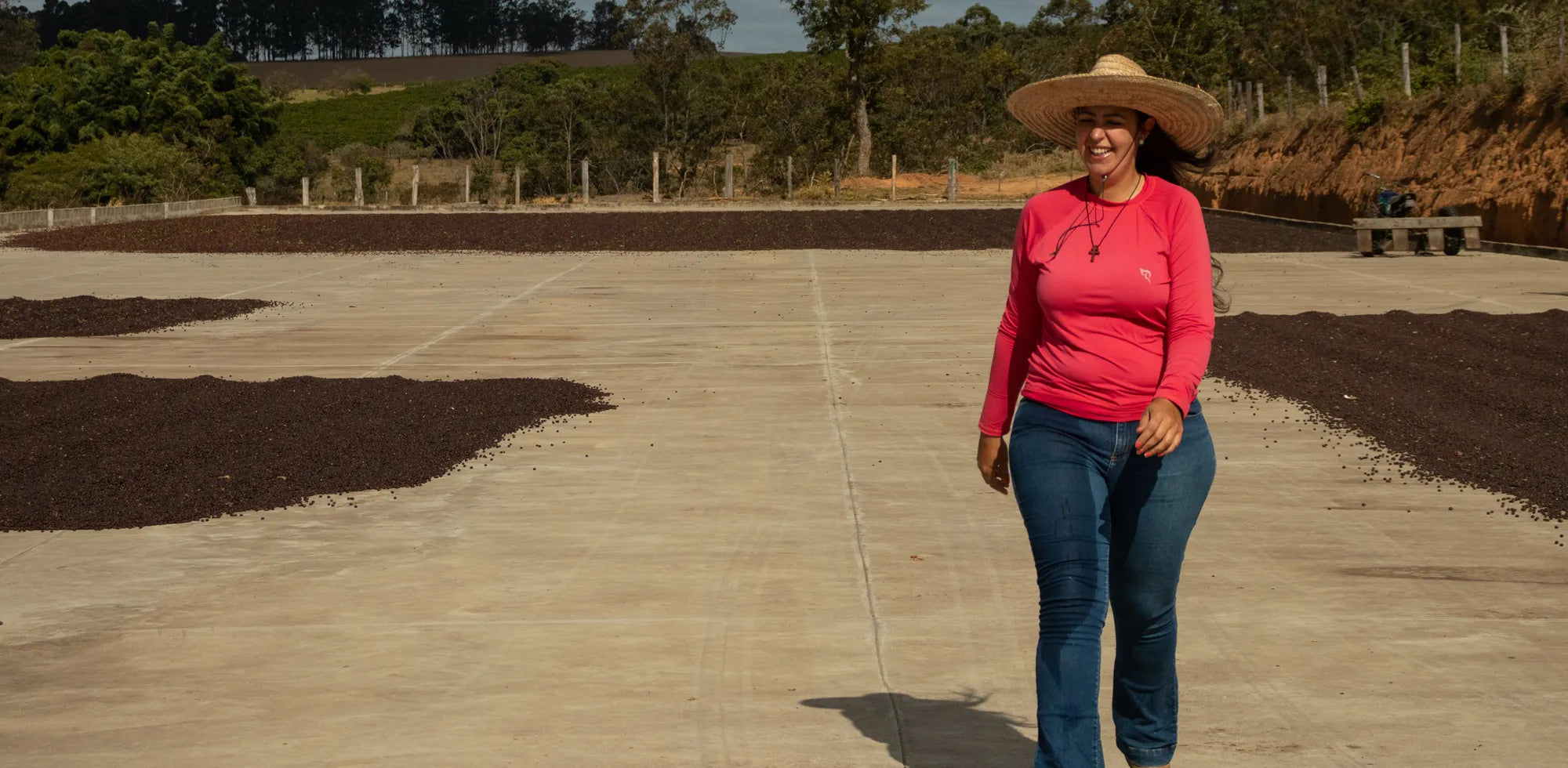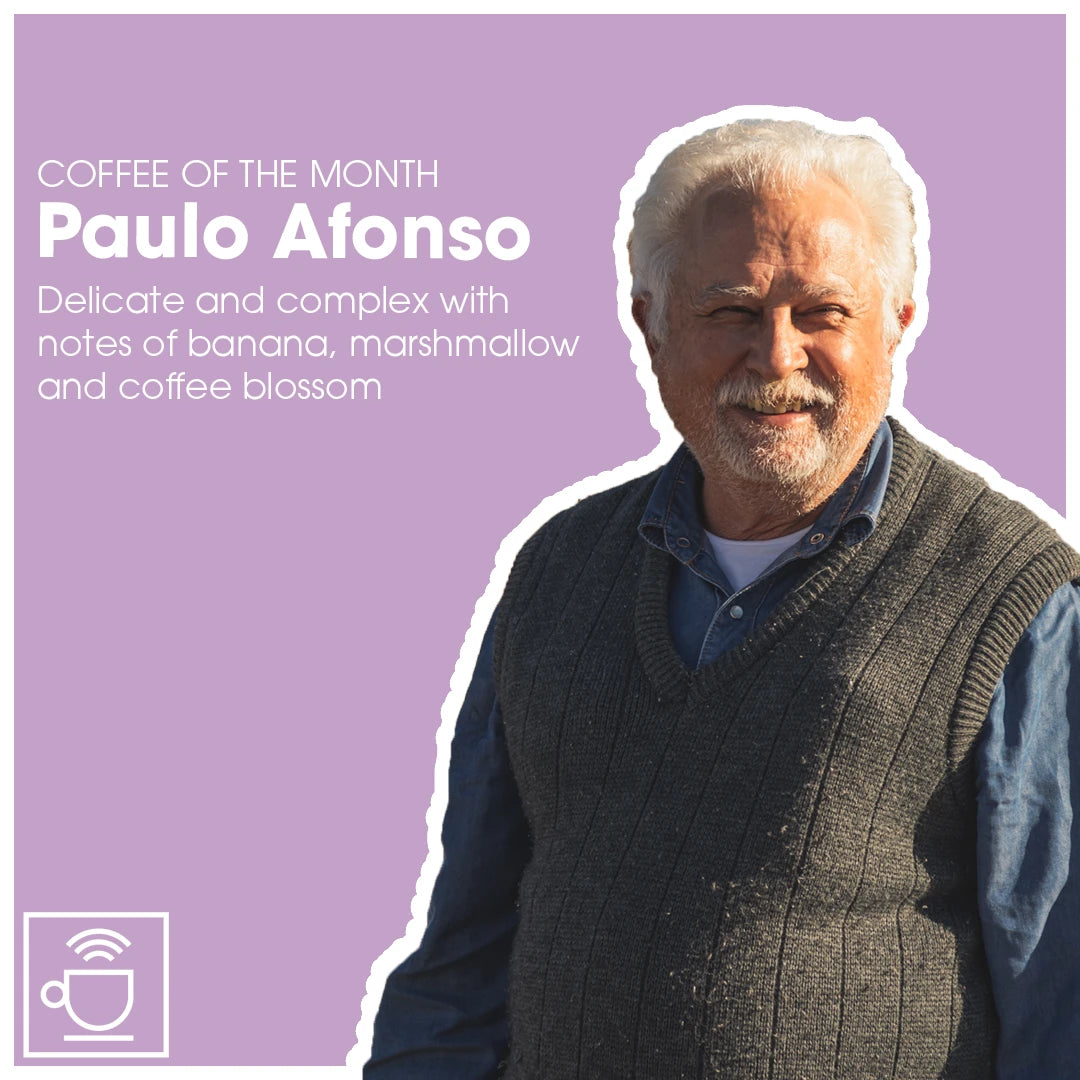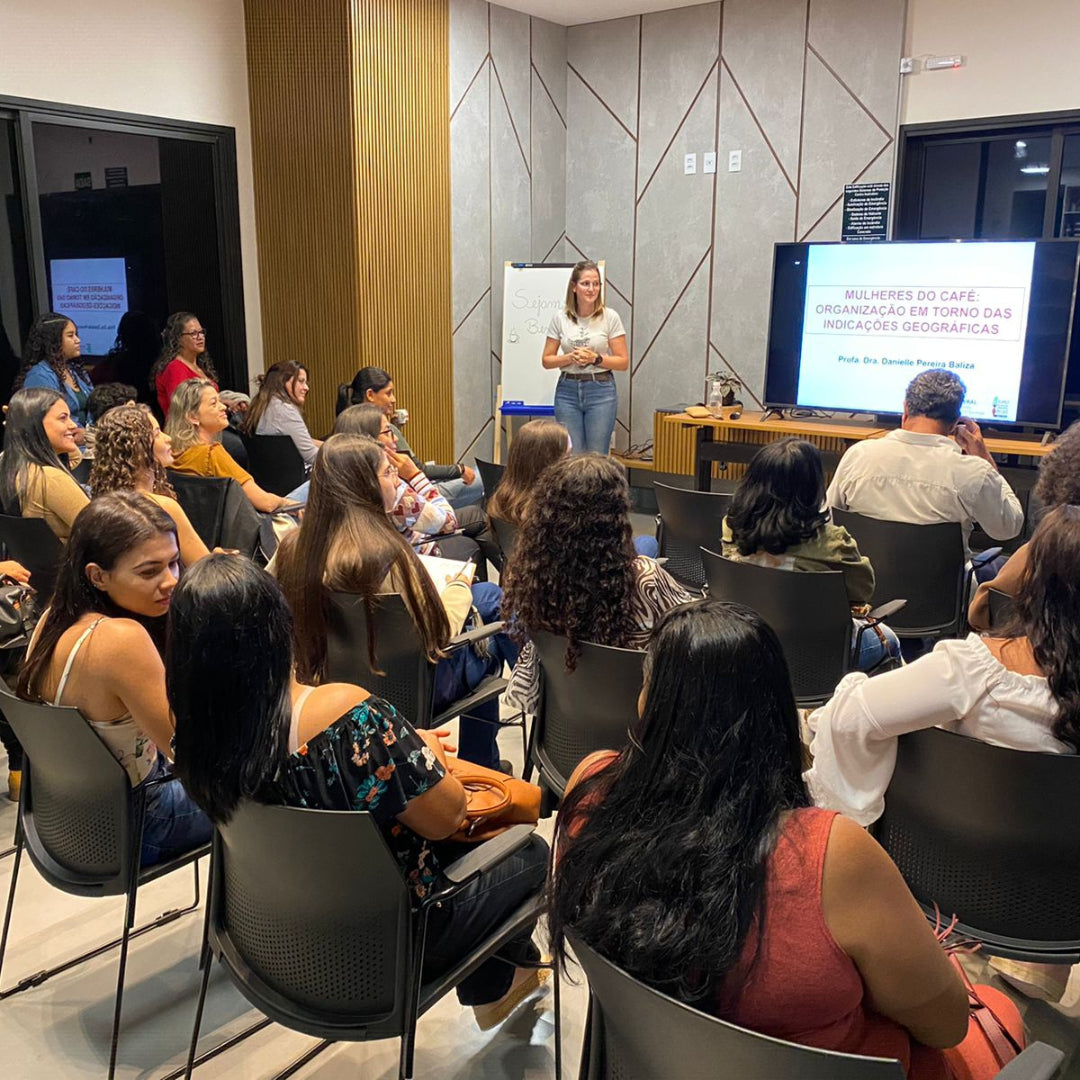
Recognition and Opportunity
The Nascentes Project
This coffee is brought to you from our direct trade partners in Brazil, Sancoffee. In 2021, they launched a project called Nascentes. It is a project led by women with the goal of empowering women in coffee production by supporting the female producers in the area, Campo das Vertentes.
The Nascentes project supports the female producers in many ways: Besides visibility and recognition for their product, the project offers education and assistance in growing the quality of their coffee. This project is born out of a desire for equal opportunities between the genders in the coffee industry.
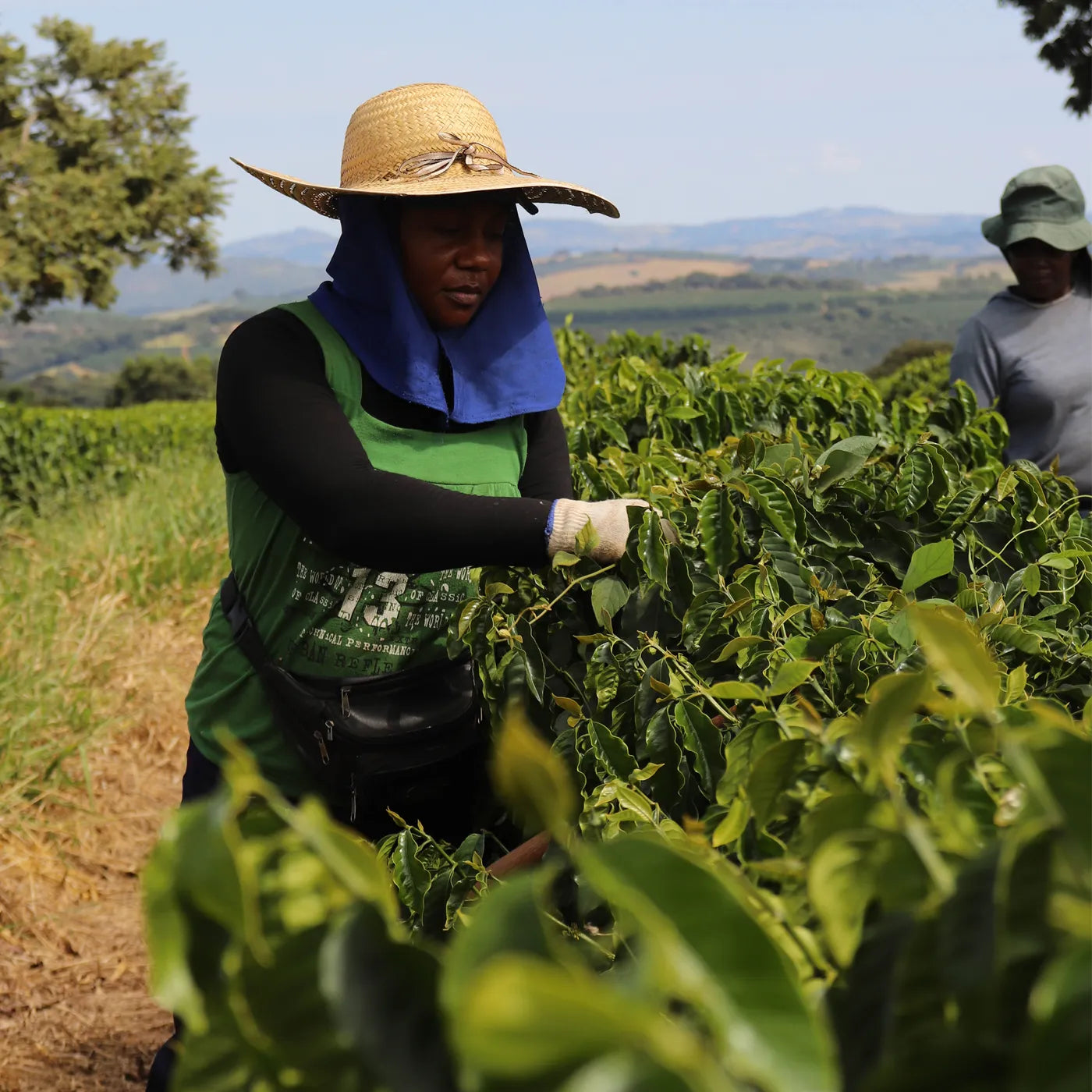
Lack of Recognition and Financial Reward
Why Is Equal Opportunity Important?
According to a report from the International Coffee Organisation, 70% of labor in coffee production is provided by women. At the same time, the report states that only 20-30% of coffee farms are female operated and that women from the industry have “systematically” lower access to resources, such as land, bank credit and information, than men.”
These inequalities do not only result in the lack of recognition but also have an economic cost. Because of the difference in access to resources, the revenue for female-headed households is significantly lower than male-headed households – with up to 44%.
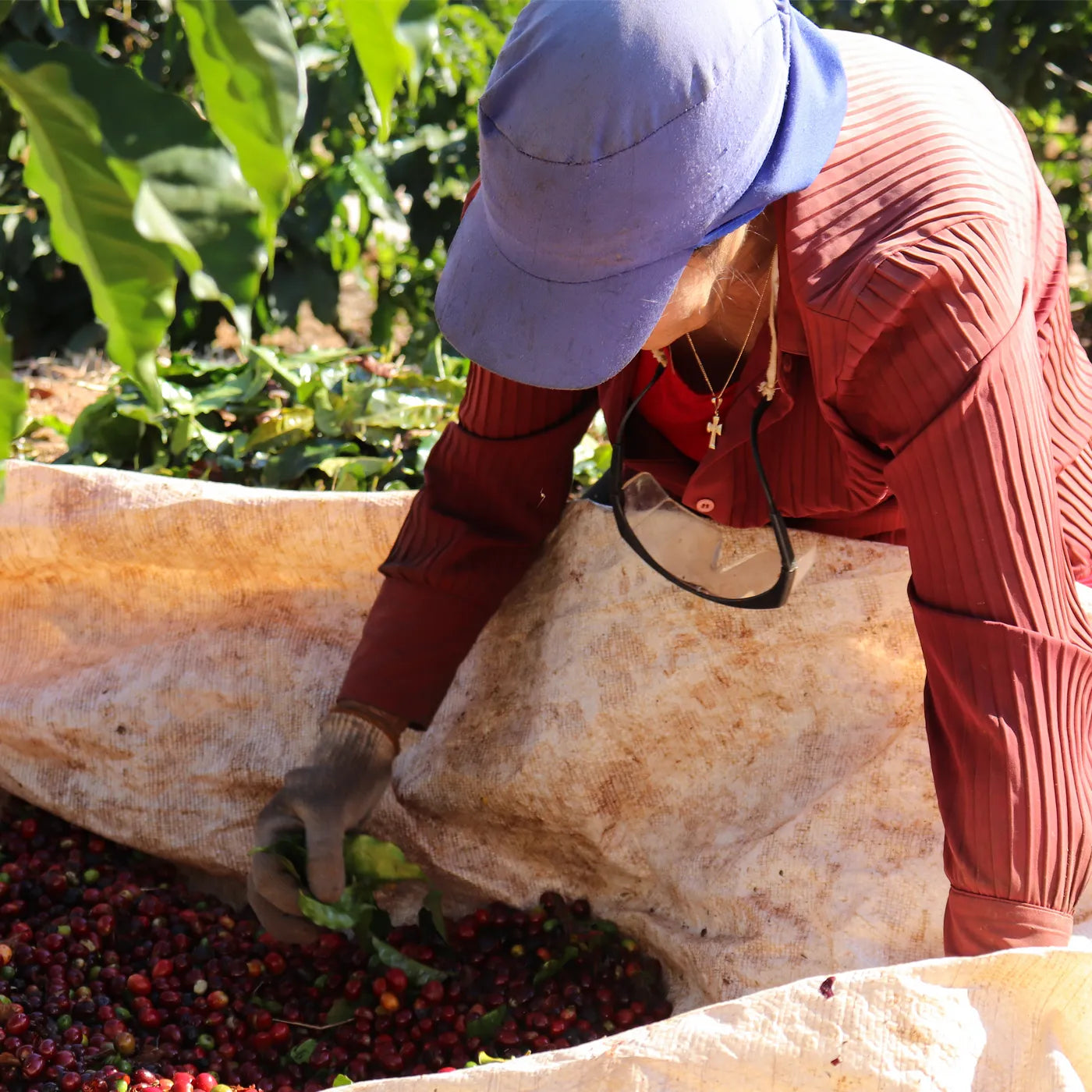
Retirement Funds in Brazil
How Do You Retire When You Have Nothing?
Retirement funding in Brazil is one of the very concrete examples of the consequences of inequality. Something that Ana Claudia – one of the leading women behind Nascentes – has highlighted about the project. Let us paint the picture:
Brazil has a fairly good public retirement system, where you can earn the right to a retirement pension based on your participation on the labour market. Brazil is aware of the inequality between men and women, therefore women need to contribute within a shorter amount of time than men.
This means that a woman can retire with a pension when they have worked and paid taxes for 30 years. If they are above 60, it is lowered to 15 years. This is all good and offers fairly good opportunities. So why is retirement still a problem in the coffee industry?
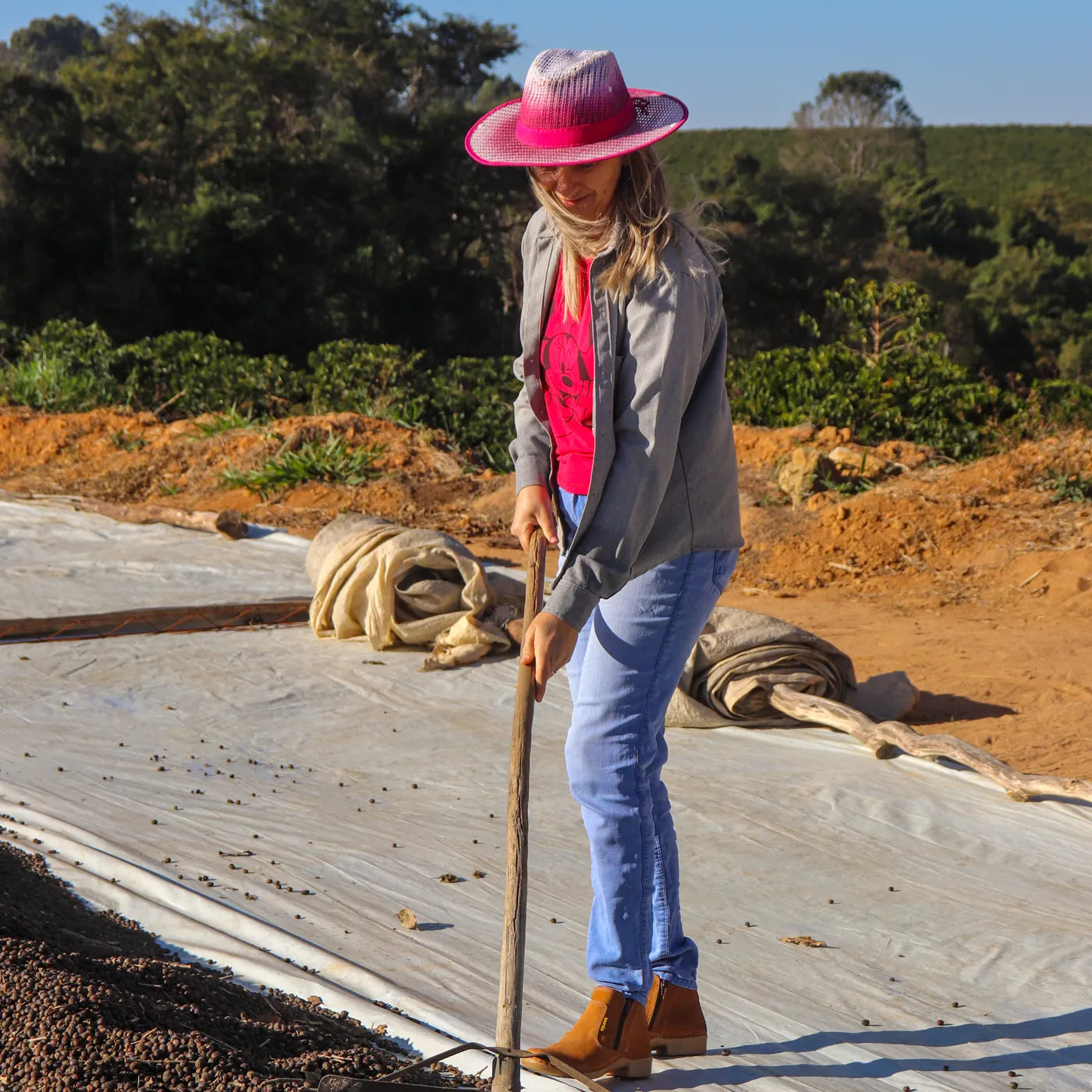
Most coffee farmers are registered as a personal company in the husband's name. Therefore all the income is registered to him, even though a lot of the work could be done by the wife. Because the women are not registered and don't have an official income, they are not paying taxes in their own name and therefore not earning access to the pension system.
If the women for any reason split up with their husband or if he dies before them, they are left with no access to or earnings from the pension system.
This is one of the reasons why the Nacentes project is important in Brazil and a very concrete example of why we also need to support the female coffee producers.

Meet a Member
This Is Luiza
One of the women in the project is Luiza, who is only 25 years old and a university graduate in medicine. She was introduced to coffee production by her father and after his death, she, her mother and her sister took over the business, despite all having a different education.
Luiza is an ambitious coffee producer and wants to showcase her coffee internationally. As a woman in a man's world, it is not always an easy aim:
Being a woman in a male-dominated industry presents challenges, especially in dealing with suppliers and producers from different generations. I believe in promoting women's roles in coffee growing, emphasizing the quality of our work. The Nascentes project caught my interest as it amplifies the impact of women in both production and leadership, addressing the gender disparity prevalent in agribusiness.
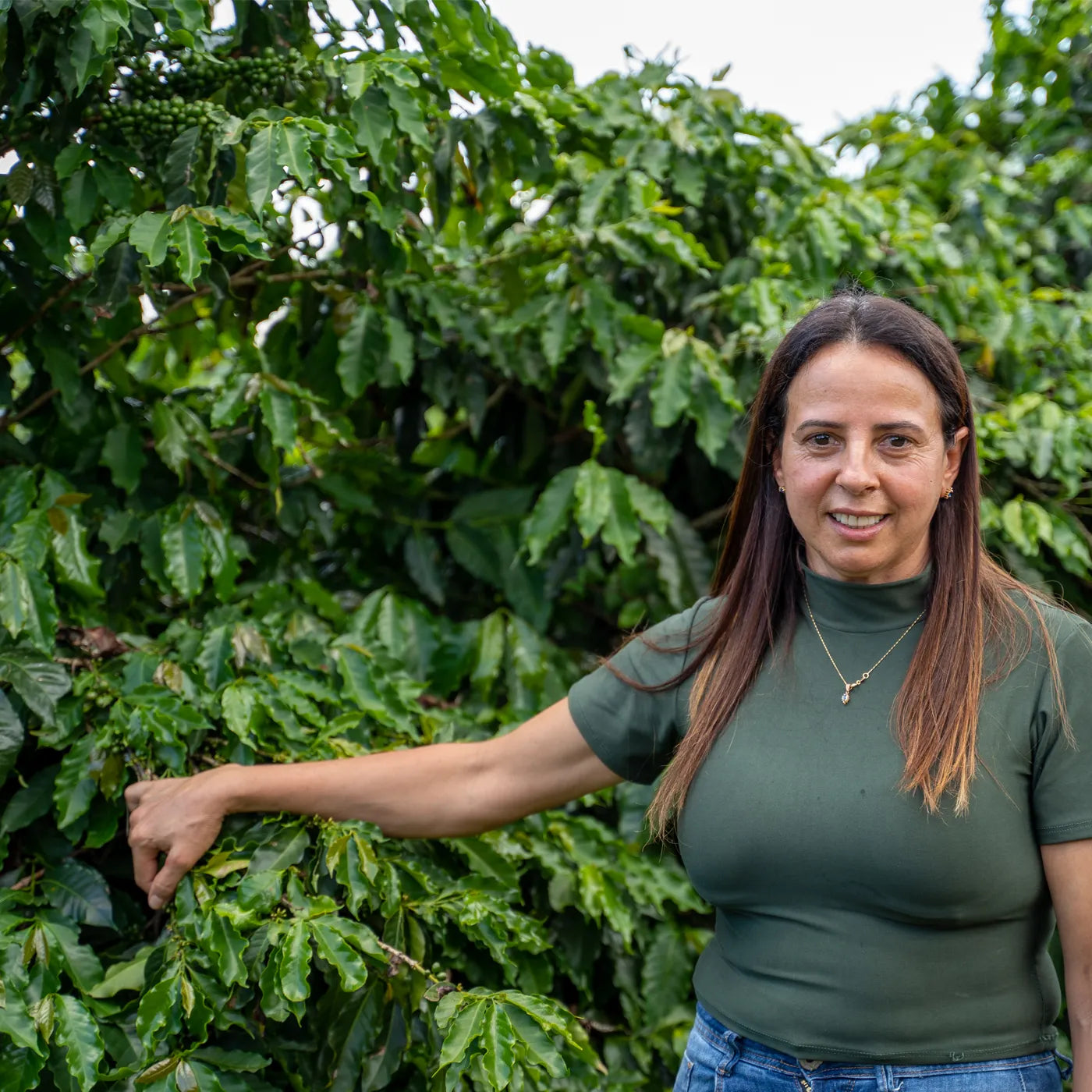
Let's Create a More Equal Industry
This Is Why IMPACT No. 03 Is So Important to Us
Supporting women's growth in the industry is an impact we want to be a driving force behind. Every drop of water that you and I can add to the stream created by Nascentes is one step closer to a more equal industry. Therefore, this is our main focus for IMPACT No. 03.
Coming from Sancoffee, our well-established direct trade partner, the coffee is also B Corp, direct trade and carbon-neutral. It is a coffee, which in many different ways leaves a positive footprint on both people and planet.
We know it goes without saying, since this crop is brought to you from Sancoffee, but IMPACT No. 03 is a delicious coffee. It is a natural processed coffee with the classic nuttiness of Brazilian coffee. It will leave you with notes of hazelnut, dried figs and milk chocolate.

CleverCoffee
IMPACT No. 03 - Produced by women
Finally! It's time for an expansion in the IMPACT series. We have received our IMPACT No. 03.
The coffee is from the Nascentes project at Sancoffee in Brazil, which supports female producers in the area. They work hard to help and ensure that women in the coffee industry have the same conditions, rights and opportunities as men.
- Produced by women in Campo das Vertentes
- Direct trade with Sancoffee in Brazil
- B Corp certified
-
Hazelnut, dried figs and milk chocolate

